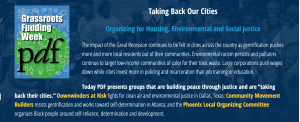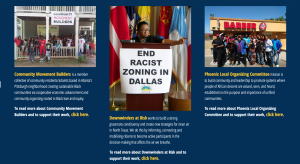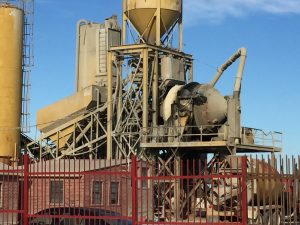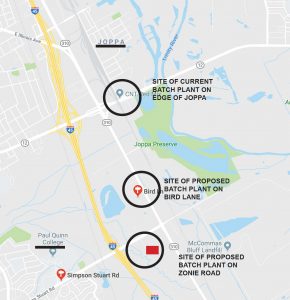Batch Plants
National Fund Spotlights Downwinders’ Efforts to “Take Back Our Cities”
Today, the Peace Development Fund is using its national presence and contacts to help raise funding for Downwinders at Risk, under the banner of “Taking Back our Cities.”
We’re being featured on their website all day. We’re one of only 13 groups chosen to receive this kind of attention from the Fund.
The Fund liked our work around the upcoming Dallas MasterPlan process, partnering with Southern Sector rising and neighborhood groups to rezone Southern Dallas communities tract-by-tract to improve environmental health.
We’re one of the few environmental groups in the country using land use planning tools to reduce residents’ exposure to pollution. Our aim is to dismantle the racism institutionalized in local zoning codes that have forced People of Color and industry to live side-by-side for decades.
Many of you helped us reach our Giving Day goal. But we need those of you who didn’t contribute on Giving Day to do your part today. Here’s your chance to join the fight for cleaner air and environmental justice.
Thanks.

Director

____________________________________
COVID Connects:
Racist Zoning
to
Increased Vulnerability to COVID
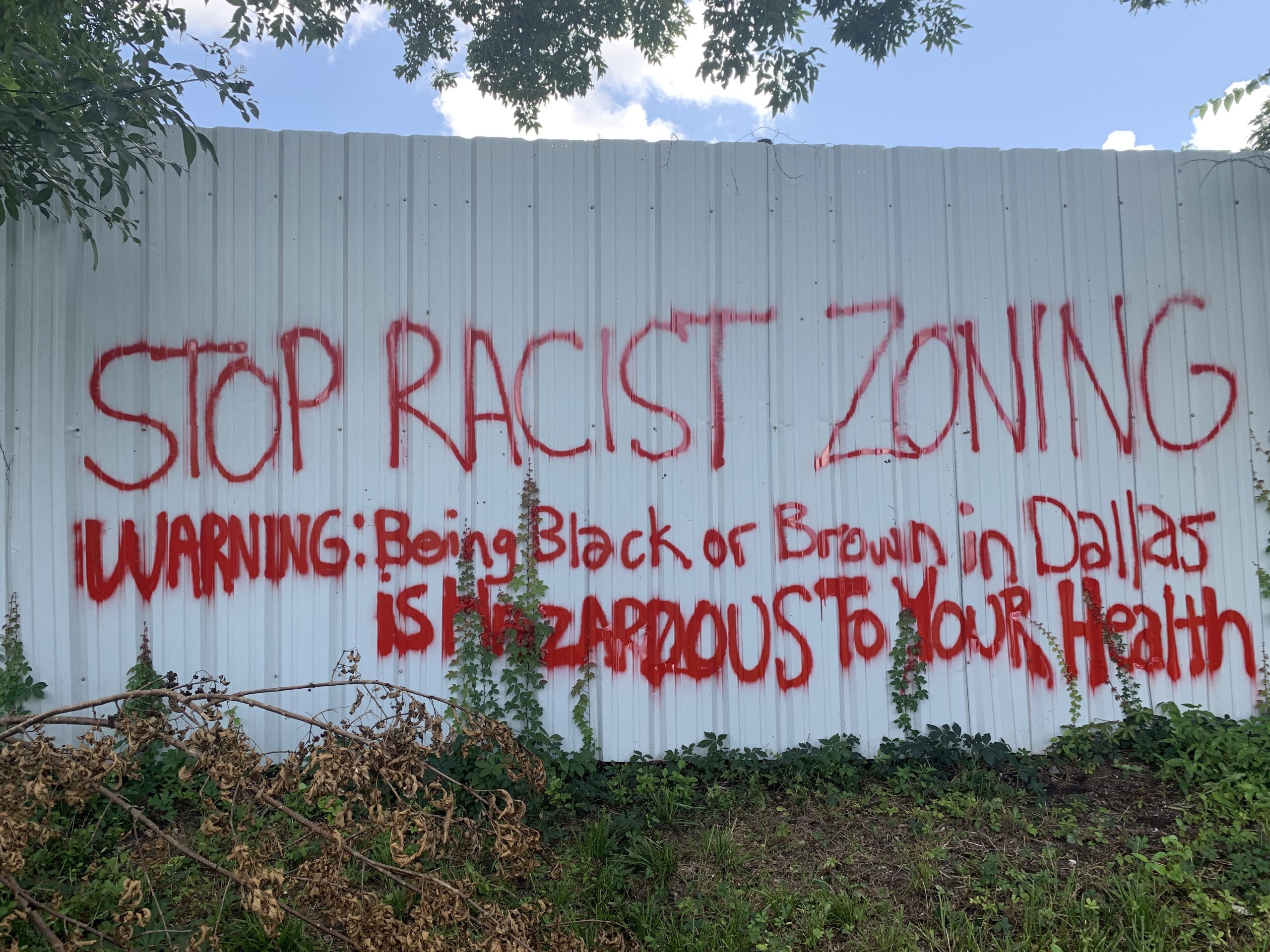
What is It?
For most people, “zoning” isn’t a very interesting topic. How your property is classified by city government is of little concern – until you discover how few protections you have or how close a large polluter can operate near you.
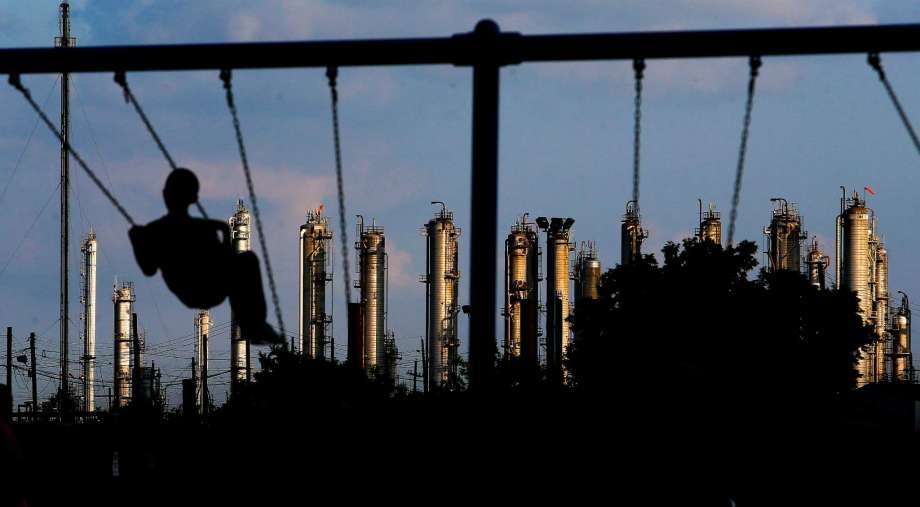 In Dallas as well as most American cities, People of Color have been historically forced by law or practice to live in neighborhoods they had to share with industry. The Trinity River floodplains were used as a large dumping ground for both people and factories deemed “undesirable” by white power brokers.
In Dallas as well as most American cities, People of Color have been historically forced by law or practice to live in neighborhoods they had to share with industry. The Trinity River floodplains were used as a large dumping ground for both people and factories deemed “undesirable” by white power brokers.
While illegal now, that institutionalized discrimination lives on in the form of obsolete racist zoning that still makes Southern Dallas a dumping ground.
Why Do It?
Unless you change the zoning classifications in South Dallas that make it such a haven for dirty industry, the City’s pollution burden will remain concentrated there, stifling economic development and quality of life.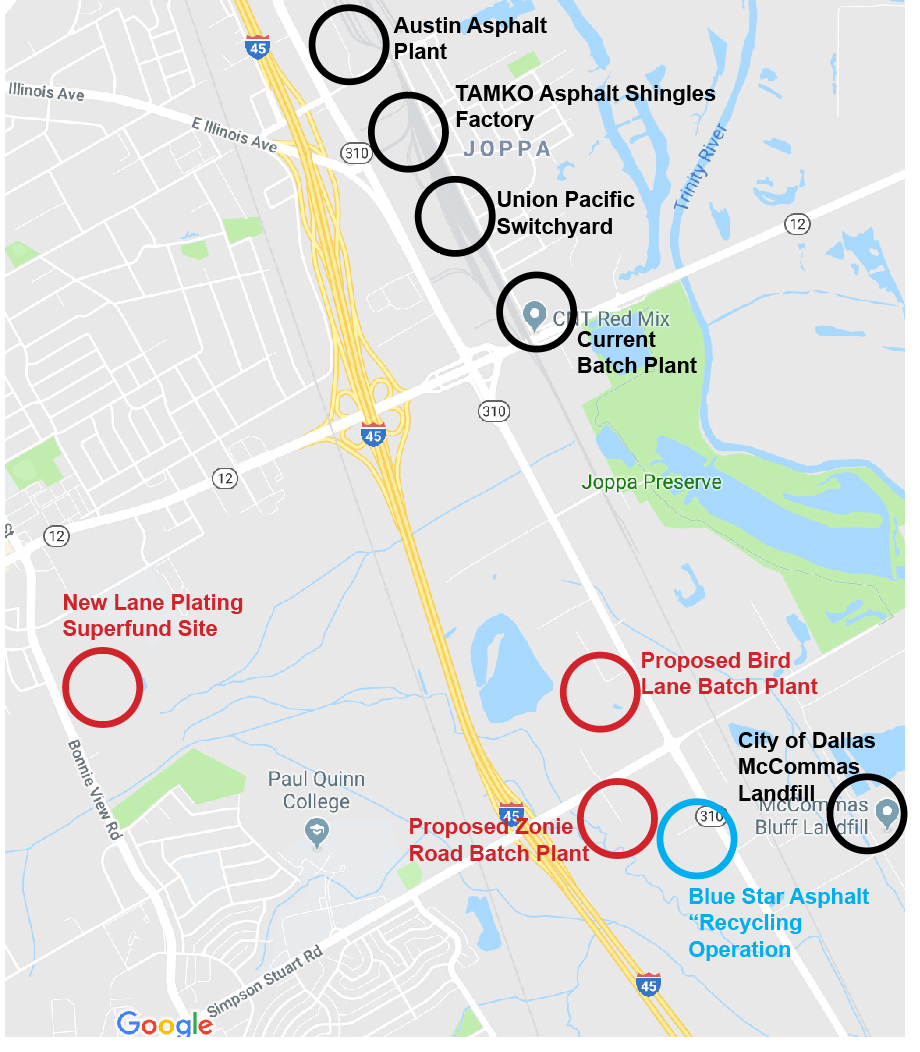 During the last two years Southern Dallas has fought off four proposed batch plants in the same neighborhood because the zoning directs them there. The notorious Shingle Mountain illegal dump took advantage of zoning loopholes to withhold notification of its activities from its neighbors. Instead of playing “whack-a-mole” and having to organize anew against every attempt to site a new polluter there, Southern Dallas residents need to re-write the leftover racist zoning laws and prohibit their part of town from becoming the default Big D dumping ground.
During the last two years Southern Dallas has fought off four proposed batch plants in the same neighborhood because the zoning directs them there. The notorious Shingle Mountain illegal dump took advantage of zoning loopholes to withhold notification of its activities from its neighbors. Instead of playing “whack-a-mole” and having to organize anew against every attempt to site a new polluter there, Southern Dallas residents need to re-write the leftover racist zoning laws and prohibit their part of town from becoming the default Big D dumping ground.
Downwinders is partnering with our friends at Southern Sector Rising and the Inclusive Communities Project to do just that. Dallas is gearing up for a once-in-a-decade review of the City’s MasterPlan that will invite residents to imagine how they want to change their neighborhoods. There’s an opportunity to submit new plans that reverse the racist zoning that plagues the entire Southern part of Dallas.
We’re working with specific Southern Dallas neighborhoods that want to give residents more green space, more buffer zones between themselves and pollution, and even begin proceedings to remove industry from their communities. It’s a 2-3 year process but the end result is increased Environmental Justice in places that desperately need it.
What’s the COVID
Connection?
Bottom: COVID Risk Factors
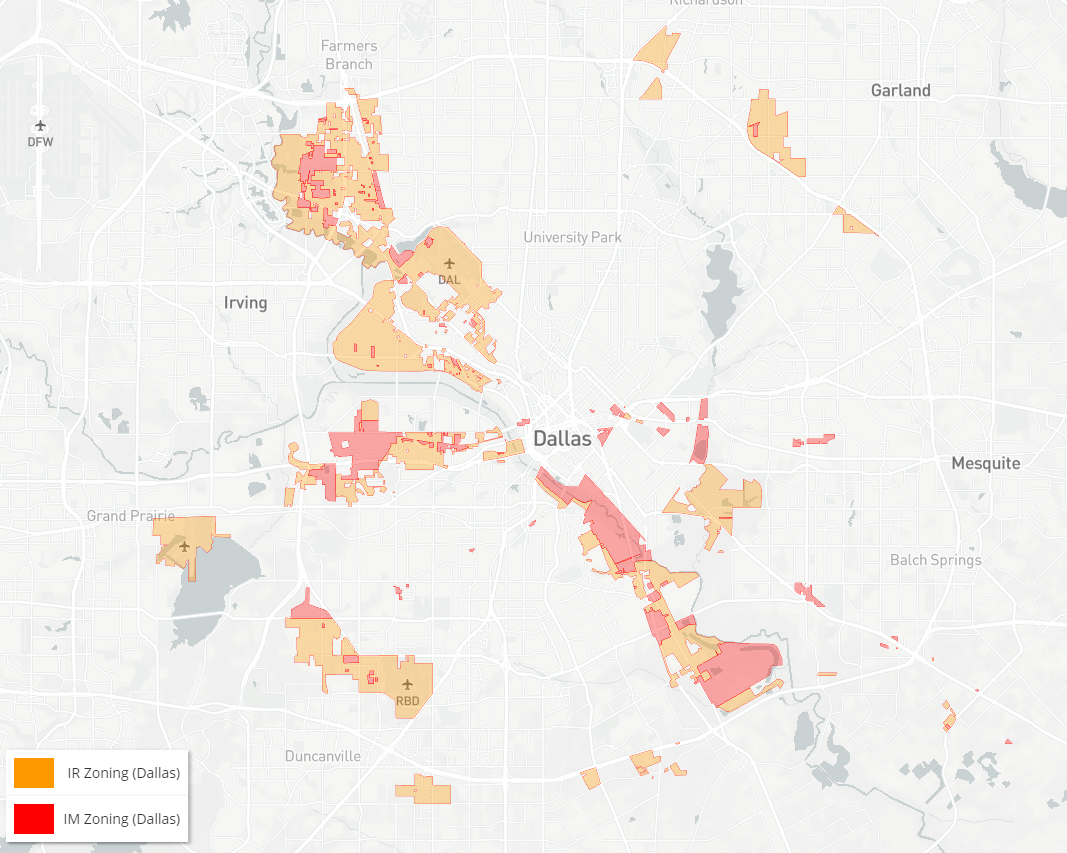 Research done during this pandemic shows Black and Brown residents are being disproportionatey impacted by the COVIC virus.This is being attributed to a number of “pre-existing conditions” in the neighborhoods where they live, including lack of health insurance and health care facilities, poverty and…exposure to air pollution. We know that Black and Brown residents are more likely to be exposed to more and higher levels of air pollution than their white peers.
Research done during this pandemic shows Black and Brown residents are being disproportionatey impacted by the COVIC virus.This is being attributed to a number of “pre-existing conditions” in the neighborhoods where they live, including lack of health insurance and health care facilities, poverty and…exposure to air pollution. We know that Black and Brown residents are more likely to be exposed to more and higher levels of air pollution than their white peers.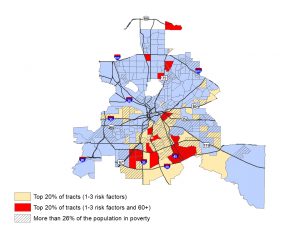 If you change the zoning so that Southern Dallas residents are not living side-by-side with polluters, you reduce their exposure to poisons and improve public health, including making them less vulnerable to viruses like COVID.
If you change the zoning so that Southern Dallas residents are not living side-by-side with polluters, you reduce their exposure to poisons and improve public health, including making them less vulnerable to viruses like COVID.
STATUS?
“forwardDallas!” is the name of the process the City of Dallas is using to redraw its MasterPlan. It was supposed to begin this Spring but may not start until summer. It will involve lots and lots of neighborhood meetings.Downwinders, Southern Sector Rising and the Inclusive 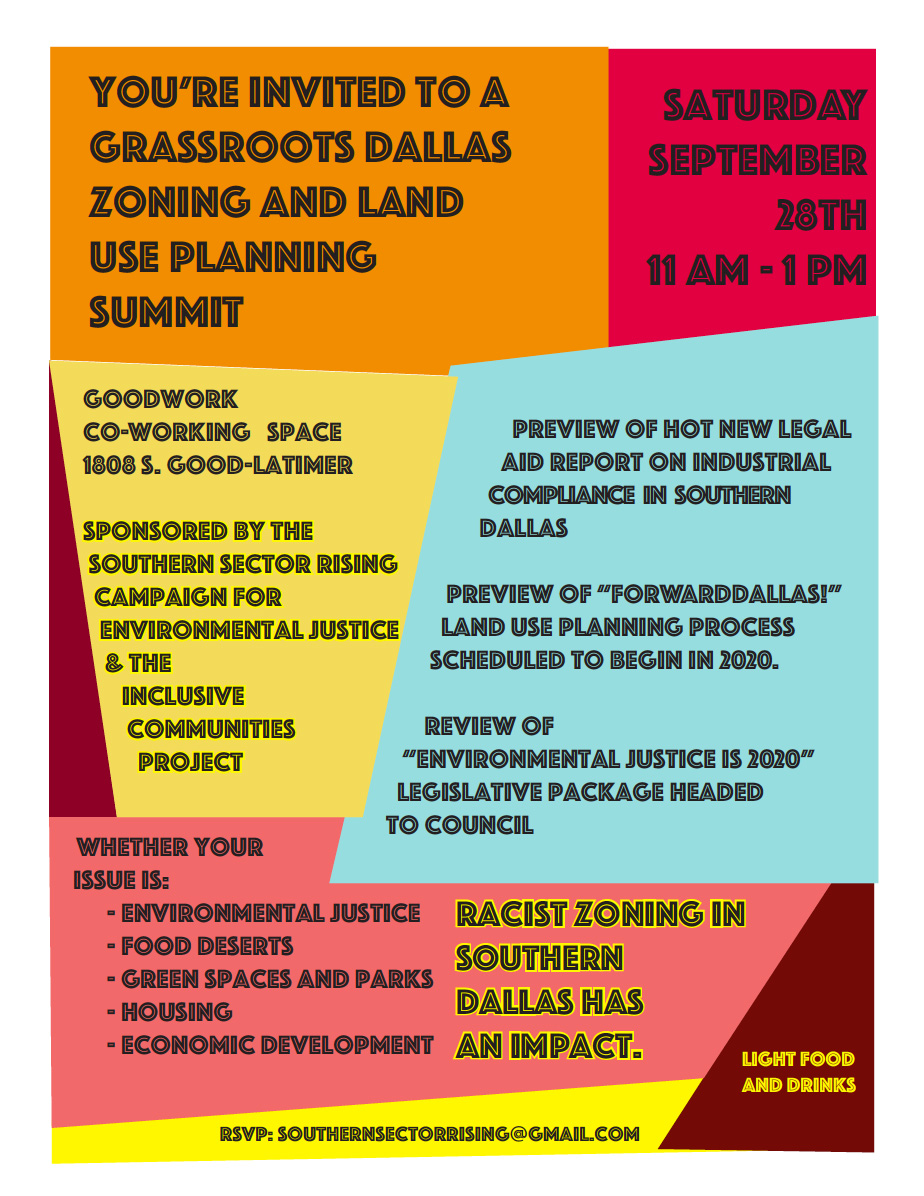 Communities Project isn’t waiting however. We’ve already met with residents’ groups in the Floral Farms and Fruitdale neighborhoods to begin a grassroots planning process. Because of their preparation, these groups will be able to show up to the City meetings with their own plans already developed and ready to be approved. More online meetings are being scheduled for other neighborhoods.
Communities Project isn’t waiting however. We’ve already met with residents’ groups in the Floral Farms and Fruitdale neighborhoods to begin a grassroots planning process. Because of their preparation, these groups will be able to show up to the City meetings with their own plans already developed and ready to be approved. More online meetings are being scheduled for other neighborhoods.
No group has used the “forwardDallas” process to overhaul Dallas zoning in such a comprehensive way. No coordinated effort has ever been focused on this mission. Like so many projects Downwinders takes on, its a “first.” But it’s a chance to make fundamental Change.
This obsolete pattern of “redlining” and segregation lives on in a legacy of racist zoning that still drives polluters to Southern Dallas and along the Trinity River Corridor. Most of the land set aside for heavy industry in Dallas is still south of the River – in predominantly Black and Brown neighborhoods like West Dallas and Joppa.
To make sure Southern Dallas doesn’t remain the City’s dumping ground you have to change the zoning that controls what can go where and next to whom.
Texas Misusing 17-Year Old Rural Air Pollution Model to Permit Inner-City Joppa Asphalt Plant
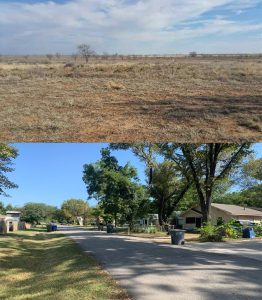
One of these is not like the other
What if you found out an industrial polluter was operating in your densely-populated neighborhood and the state told you not to worry because an obsolete computer model of the polluter’s releases 17 years ago and 500 miles away, in a desert, performed by the polluter themselves, said everything was OK?
That’s exactly the situation Joppa residents find themselves in as the Texas Commission on Environmental Quality (TCEQ) goes through the motions of renewing one of the permits of the many industrial polluters located in the community.
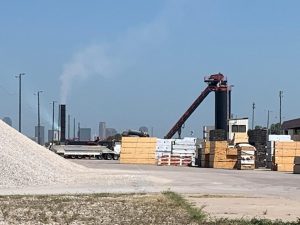 Austin Industries’ asphalt batch plant sits next to the Marietta Martin (TXI) concrete batch plant in Joppa, and both are in the Union Pacific switch yard and all of those are adjacent to the giant Tamko asphalt roofing factory.
Austin Industries’ asphalt batch plant sits next to the Marietta Martin (TXI) concrete batch plant in Joppa, and both are in the Union Pacific switch yard and all of those are adjacent to the giant Tamko asphalt roofing factory.
Austin has applied to the TCEQ for a renewal of its 10-year old air permit for its Joppa plant and gave notice last December. Legal Aid of NorthWest Texas requested a contested case hearing on behalf of the Joppa Freedman’s Town Association and Downwinders at Risk requested one on behalf of resident Jabrille McDuffie.
To absolutely no one’s surprise, TCEQ’s Executive Director recommended against such a hearing at the beginning of August in comments mailed out to all parities. He argued that contrary to the opponent’s claims there was sufficient evidence that Austin Industries permit in Joppa was following the law and was “protective of human health.” Previous “air quality analysis,” the Executive Director says, have concluded such already.
The entire basis of that “air quality analysis” is the computer air modeling performed by Austin Industries’ hired contractors and supposedly double-checked by the state…in 2002.
Just like any other computer model, it all depends on the variables: volume of air pollution, local meteorology, stack height, local “receptors” aka people or animals who live by or near the facility, and even local terrain. Winds do one thing to air pollution on the open plains and another in the middle of a city block.
Because of these variables, an Exxon refinery that wants to build a facility in Houston with the exact same design as is has in Arkansas still has to submit a separate computer model to account for the distinct surroundings in the new location. The one from Arkansas just won’t do for Houston.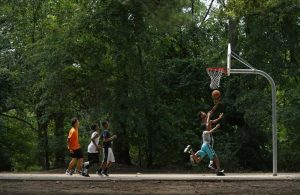
Or at least that’s the way things are supposed to work. But like so much else in Southern Dallas these days, things aren’t working the way they’re supposed to.
According to the TCEQ the Austin Asphalt facility is a portable asphalt batch plant operation. That means it wasn’t built specifically for its current Joppa site. It was moved there and it can be moved somewhere else.
In 2002 it first operated in Hockley County, a rural part of Northwest Texas near Lubbock some 400 miles west of Joppa. It moved to its current location in Joppa in 2008.
In 2002 the TCEQ let Austin Industries use what’s called a “SCREEN3” air model to determine if the air pollution from its asphalt batch plant’s was a threat to anyone in Hockley County. Again unsurprisingly, the firm hired by Austin Industries to do the computer modeling found it was “protective of human health.”
TCEQ says the Austin Industries’ asphalt plant has never been subject to any additional “impacts evaluation.” besides this 2002 review.
That means the only air modeling ever done for this Austin asphalt plant was while it was operating in rural Hockley County in 2002. There has been no air modeling of the plant since it came to Joppa in 2008.
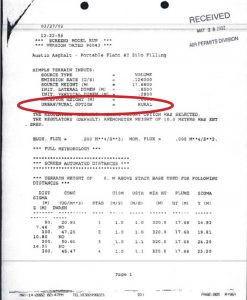
In 2002 the Austin plant was in West Texas and used a rural air model. In 2019 they’re still using for it for operation in Joppa.
Besides the most obvious and important difference in population density between unincorporated Hockley County near Lubbock and inner city Dallas, all of the variables in the 2002 modeling apply only to the Hockley County location. Meteorology, stack height, and surrounding terrain among them. In fact, the entire model was defaulted to a “rural” versus “urban” option in 2002. This renders the modeling scientifically useless in its current location in Joppa.
But that uselessness isn’t keeping the Executive Director of the Texas Commission on Environmental Quality from citing it to justify renewal of Austin’s air permit.
There’s also the matter of the age and limitations of the SCREEN3 model. In 2011 EPA replaced it with something called the “AERSCREEN” model. In doing so the agency called the old model “outdated“ and said “there are no valid reasons” to keep using SCREEN3.
And it’s not just the EPA. State environmental agencies, like the Arizona Department of Environmental Quality, have quit accepting SCREEN3 modeling.
Alex De Visscher, Associate Professor and Canada Research Chair in Air Quality and Pollution Control Engineering at the University of Calgary, writing in an 2013 text book entitled “Air Dispersion Modeling: Foundations and Applications,” said SCEEN3 is a “product of a previous generation of air dispersion modeling” and “is no longer a recommended model… it does not allow for multiple sources, and it does not include atmospheric chemistry or deposition.”
These exclusions are important. There are multiple sources of Particulate Matter 2.5 air pollution at Austin Industries’ plant in its Joppa location, including piles of raw material, and industrial combustion at the site. SCREEN 3 modeling didn’t and wouldn’t reflect these multiple sources of pollution. And of course when you’re talking about PM 2.5 pollution, as you are with an asphalt batch plant, the atmospheric chemistry and deposition, or fallout, is critical.
TCEQ’s own air modeling guidelines say so:
“Air dispersion models utilize dispersion coefficients to determine the rate of dispersion for a plume. Dispersion coefficients are influenced by factors such as land-use / land-cover (LULC), terrain, averaging period, and meteorological conditions. Evaluating the LULC within the modeling domain is an integral component to air dispersion modeling. The data obtained from a LULC analysis can be used to determine representative dispersion coefficients. The selection of representative dispersion coefficients may be as simple as selecting between rural or urban land-use types. For the ISC, ISC-PRIME, and SCREEN3 models, the dispersion coefficients are based on whether the area is predominately rural or urban. The classification of the land use in the vicinity of sources of air pollution is needed because dispersion rates differ between rural and urban areas.”
The TCEQ itself says it makes a fundamental difference whether the air model for a polluter is run for urban or rural terrain. Yet for over a decade TCEQ and Austin Asphalt have misused the results of a “rural” computer model to misleadingly assure inner-city Joppa residents that the company’s asphalt plant posed no harm.
What’s more, the modeling performed in 2002 only examined “asphalt vapors,” a made-up, vague pollutant category that can’t be monitored or measured. It didn’t examine Particulate Matter 2.5 pollution or specific Volatile Organic Compounds that make up those “vapors” and was therefore incomplete in the extreme.
So despite all the verbage the TCEQ’s Executive Director uses to tell Joppa residents th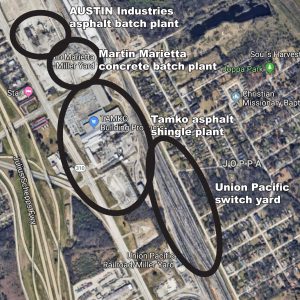 at past “air analysis” has shown Austin Industries’ plant to be protective of human health, in truth the only “analysis” ever done was performed 17 years ago in a sparsely-populated rural location 400 miles away from its current location, with what TCEQ admits are totally inaccurate modeling inputs by company consultants. It didn’t include all priority pollutants or even all sources of air pollution from the facility and the model used is now considered obsolete by EPA, modeling experts, and other state environmental agencies.
at past “air analysis” has shown Austin Industries’ plant to be protective of human health, in truth the only “analysis” ever done was performed 17 years ago in a sparsely-populated rural location 400 miles away from its current location, with what TCEQ admits are totally inaccurate modeling inputs by company consultants. It didn’t include all priority pollutants or even all sources of air pollution from the facility and the model used is now considered obsolete by EPA, modeling experts, and other state environmental agencies.
Joppa residents deserve better.
In its response to the Executive Director, Downwinders at Risk specifically requested TCEQ delay further regulatory action on this permit renewal until it can conduct a modern comprehensive air modeling impact analysis for Austin Asphalt’s current operation in Joppa that requires an evaluation of all on-site sources of pollution, including fugitive and mobile sources, on the Austin Asphalt site, off-site near-by sources of pollution within a three kilometer (1.86 mile) radius of Austin Asphalt’s facility, and representative monitored background concentrations obtained from local Joppa neighborhood monitoring as well as modeling of permitted maximums emission rates form all sources.
On September 11th the Texas Commission on Environmental Quality will take up the Austin Industries permit renewal at its headquarters in Austin. Both Legal Aid and Downwinders at Risk representatives will be present to answer any questions from the Commissioners but will not be allowed to make any statements. We’ll let you know the outcome.
One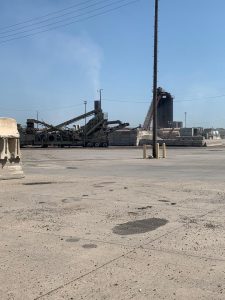 might reasonably ask why the City of Dallas itself isn’t fighting this permit renewal? After all in 2007, the city took on a string of proposed coal-fired power plants that it said would increase air pollution for Dallas. But to date that same city has never bothered to try and stop an industrial polluter from opening shop or renewing its permit in one of its most abused neighborhoods.
might reasonably ask why the City of Dallas itself isn’t fighting this permit renewal? After all in 2007, the city took on a string of proposed coal-fired power plants that it said would increase air pollution for Dallas. But to date that same city has never bothered to try and stop an industrial polluter from opening shop or renewing its permit in one of its most abused neighborhoods.
This dishonest use of a irrelevant model by the state’s discredited environmental agency shows why it’s imperative the City of Dallas – and all municipalities in Texas – change the way they do business and be proactive in addressing their environmental justice and environmental health issues in their own city limits.
Too often city representatives default to state or federal officials on the environment when they should be the first line of defense, not the last. City officials’ reliance on a failed state agency to perform its job as environmental protector is what caused Shingle Mountain. It’s what caused this situation in Joppa. To change that means changing both policies coming out of City Hall and current City Hall culture. Environmental Protection is a Do-It-Yourself proposition these days.
We Won! Dallas Plan Commission Votes 7-3 to Deny Approval of Bird Lane Batch Plant
It’s the 5th time in the last 13 months residents of
South and West Dallas have beaten back City staff attempts to put more polluters in their backyards
But this time they had to take on
their own Council Member and Plan Commissioner.
Channel 5 Coverage
City Hall Videotape Plan Comm. Mtg
(batch plant case begin about 20 minutes in)
In one of the most impressive recent displays of South Dallas neighborhood empowerment, residents won their fight last Thursday at the Plan Commission to keep yet another batch plant from setting-up shop among them.
But unlike past battles, they had to overcome their own Council member and his Plan Commissioner to do it.
Residents, as well as representatives from the Joppa Freedman Township Association, Paul Quinn College, the Inclusive Communities Project, and Downwinders at Risk all spoke out against the idea of transforming another piece of South Central Expressway property into a hub of heavy industry.
Leading the other side in support of the Bird Lane batch plant was of course the company proposing it, Estrada Concrete, and their consultants, but also District 8 Council Member Tennell Atkins’ Plan Commissioner, Chris Lewis. Bird Lane is in District 8.
Usually the support or opposition of the home district Council Member and Commissioner is key to the final tally, but in this case, the strength of the case against the plant was so solid, and Lewis’ plea to approve it so feeble, that a majority of his peers rejected his request. As these things go, it was a huge, humiliating smack down.
Lewis’ anti-citizen stance is more shocking once you know that only five days earlier he’d assured District 8 residents he’d be voting against the batch plant. Instead, the moment the last of the opposition speakers finished (there were no residents speaking in favor), he immediately made a motion to approve the batch plant.
Needless to say, that turn of events caught everyone opposing the plant off guard and provoked a rowdy backlash in the audience that built until the final vote was taken.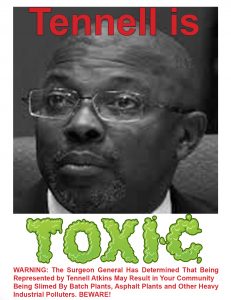
If it hadn’t been for District 11 (Kleinman) Commissioner Jaynie Schultz, District 3 (Narvaez) Commissioner Deborah Carpenter, District 5 (Callahan) Commissioner Tony Shidid, and District 1 (Griggs) Commissioner Jarred Davis raising objections, asking hard questions, and pointing to specific guiding language in the Dallas Planning Code, the vote would have gone against neighbors. In other words, there were at least four other Commissioners doing the work on behalf of District 8 residents that Mr. Lewis was appointed to do. Both Kevin Felder’s and Casey Thomas’s slots on this important body are currently MIA because they haven’t yet named replacements for their departed Commissioners.
That’s not a traditional liberal-conservative alliance that defeated the batch plant– you won’t find Scott Griggs and Rickey Callahan tossing back beers together. Nor is it a strictly black and white split. Of the two black Commissioners present, the only one voting for the batch plant was Mr. Lewis.
It was a neighborhood/Citizens Council split.
Not in any “big” issue, lots-of-phone-calls-before-the-vote kind of way. Rather, in a small, looking-out-my-own-backdoor kind of way.
Commissioners who opposed the batch plant couldn’t imagine looking out their own doors and seeing this thing as a neighbor. Those voting in favor knew such a fate was impossible for them.
Final proof is found in looking at who voted in favor of Lewis’ original motion to approve the batch plant. It included longtime Dist 15 (Rawlings) Commissioner Gloria Tarpley who’s distinguished herself in the past by voting for illegal gas drilling, and the Commissioners from Districts 13 (Gates), and District 10 (McGough).
As per usual, Dallas City staff had recommended approval of the Bird Street Batch plant, so residents really were fighting the entirely of City Hall – including the guy that’s supposed to be their full-time advocate at the place. And yet they persisted. And they won.
As it happens, the knock -out was a twofer. Not only did District 8 residents defeat the Bird Street batch plant, but they also learned that plans for Estrada’s other proposed batch plant around the corner on Zonie Road were being pulled as well.
Their victory – your victory too thanks to over 100 emails of opposition sent through our Citizen Action portal – was one event in a series of recent events that have given environmental justice issues in South Dallas some real traction of late. The first Joppa batch plant fight last March, announcement of the new Superfund site near Paul Quinn, discovery of Marsha Jackson’s “Asphalt Alps,” and other open wounds are beginning to provoke community self-defense responses.
Whether those responses can overcome South Dallas business as usual at the ballot box in May, or produce systematic change at City Hall, is a large and important question not only for South Dallas, but Dallas as a whole. We all live in neighborhoods. We all live downwind.
Plan Commission Zoning Vote for Bird Lane Batch Plant: Round 2
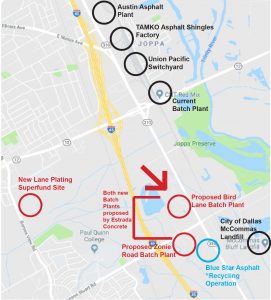
Dallas Plan Commission Hearing Scheduled
for Thursday January 17th, 1:30 pm
Dallas City Hall Rm 5ES
Speak Out Against
Systematic Environmental Racism
1) CLICK HERE TO SEND AN EMAIL TO
THE PLAN COMMISSION RIGHT NOW
Urge them to deny these permits…and consider a moratorium on ALL new industrial permits south
of the Trinity River “until the City can provide
a way to insure the same neighborhoods
are not always chosen to host them.”
2) SHOW-UP AT THE HEARING ON THE 17th
and speak against the zoning change
that Estrada Concrete is seeking.
Thanks in part to your emails, the Plan Commission delayed routine approval of the Bird Lane batch plant at its December 13th meeting and scheduled an individual hearing for Thursday, January 17th that could start as early as 1:30 pm at Dallas City Hall.
If you didn’t get a chance to send an email opposing the batch plant to the Plan Commission in December and want to do so you have that chance through our revised Featured Citizen Action “clickNsend” messaging. If you did send one in, send another.
This time, you can not only tell the Commission you oppose this specific permit…but ALL new industrial permits south of the Trinity River until the City of Dallas quits dumping all new polluters there.
We know the Bird Lane Batch Plant will be on the January Commission agenda but residents may be facing a twofer by then. The same company pursuing the Bird Lane site is also looking to put another new Batch Plant on Zonie Road right around the corner. After initially rejecting that effort because the paperwork wasn’t correct, it seems to be back on track up for Commission action as well – we just don’t know when yet.
All of this is just down the street from Blue Star Asphalt “Recycling” mess, aka Asphalt Mountain, current industry in Joppa, and close to the new Lane Plating Superfund site.
It seems certain that at the very least, the Plan Commission will decide on a Special Use Permit, or SUP, that Estrada Concrete needs to operate a concrete batch plant on the Bird Lane property for a minimum of three years..
Opposition is based both on the specific problems the batch plants would cause for neighbors, and the fact that this part of South Dallas already has a disproportional amount of polluting industries.
THANKS!
You generated over 60 letters of opposition to the Bird Lane Batch Plant
Zoning Vote for Bird Lane Batch Plant Pulled from December 13th Plan Commission Agenda
Individual Hearing Scheduled
Thursday January 17th, 1:30 pm
Dallas City Hall Rm 5ES
Speak Out Against Environmental Racism
The first of two Estrada Concrete batch plants proposed for right around the corner from Blue Star Asphalt Recycling and initially slated to be routinely approved as part of a group of more mundane zoning requests, is now scheduled for its own hearing and vote next month.
Thanks to neighborhood opposition, including, God Bless Them, Temeckia Dorrough and Marsha Jackson plus the Inclusive Communities Project, institutional opposition from near-by Paul Quinn College, and over 60 letters generated through the Downwinders’ Click N Send feature, the Plan Commission pulled the batch plant form its consent agenda on December 13th and scheduled a separate hearing and vote on the case for January 17th.
Had vigilant citizens not plugged-up the City Hall pipeline, this is a zoning change that would have passed easily with full staff support and without even a record vote by the Commission.
At stake is issuance of a Special Use Permit, or SUP, the owners need to operate a concrete batch plant on the Bird Lane property for a minimum of three years.
Still unknown is when the OTHER Estrada Concrete batch plant also gets the green light for a scheduled vote. It’s proposed for Zonie Road, immediately adjacent to and downwind of homes and a shingle’s throw from troubled Blue Star Asphalt Recycling. It’s possible both sites could be on the same January 17th Plan Commission agenda.
The Bird Lane site is already zoned Industrial Research (IR) while the Zone Road site is zoned Agricultural with a pending request to zone it Industrial Research as well. IR and Industrial Manufacturing, or IM zoning next to minority residential neighborhoods along the Trinity River has been the source of most local environmental justice battles.
Opposition is based both on the specific problems the batch plants would cause for neighbors, and the fact that this part of South Dallas already has a disproportional amount of polluting industries.
Come January we’ll be adjusting our Click N Send messaging to reflect the new Plan Commission hearing and vote date and let you know when you can have another big impact with your letters of opposition.
Discussion of both these proposed batch plants and the underlying zoning issue which keeps facilities like this coming to South Dallas will be on the agenda at the next “Let Joppa Breathe” Alliance meeting, scheduled for January 14th.
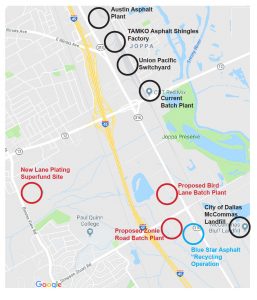
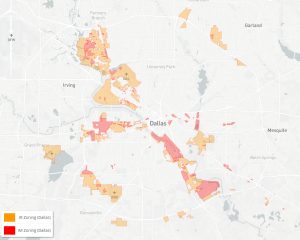
Environmental Justice Alert! Help Us Stop the First of Two New Batch Plants Proposed for South Dallas
Plan Commission Action THIS Thursday
You can send a email opposing both proposed batch plants to the Plan Commission today
JUST CLICK HERE
On Thursday the Plan Commission will vote on an SUP for the Bird Lane batch plant site – one of two being proposed by Estrada Concrete along the Stuart-Simpson/Central corridor in South Dallas.
There is more than a little suspicion that this is a backdoor way to get the pair of batch plants that were defeated by Joppa residents in March back in play – only in a more business-friendly council district. The two new requests are coming from a very small company run out of a house with only one batch plant in operation now, located in an industrial park in Hutchins just six minutes down the highway.
To defeat this bad idea we need you to:
1) let the Plan Commission know you oppose the batch plants and the zoning changes they require ASAP. Please use our simple ClickNSend email letter template to send a letter of opposition. Add your own comments if you want. It’s already addressed to all the Plan Commission members. All you have to do is fill it out and “click send.”
2) show up on Thursday at the Plan Commission to voice your opposition in person if you can:
DALLAS CITY HALL
CITY PLAN COMMISSION MEETING
THURSDAY, DEC 13th
ROOM 5ES
1:30 pm
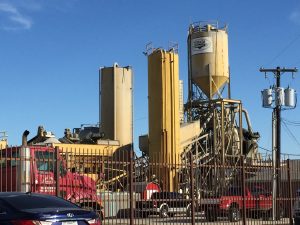
Staff has recommended approval of a Special Use Permit to operate a batch plant for three years at this Bird Lane site, which is next to homes and right around the corner from a second batch plant site the same company – Estrada Concrete – is pursuing via a zoning change request.
Since there are two sites there are two votes. The other site won’t come up for a vote until January 3rd at the earliest, but this Bird Lane site is gong through the pipeline now.
What’s needed now is sending these Plan Commission members lots and lots of emails saying we oppose these zoning changes and Special Use Permits AND are seeking a individual hearing for the Bird Lane site on the 13th.
There are two different types of agenda items when it comes to city decisions. One is the “individual” agenda item for which topics will be discussed and the public can make comments.
The other type of agenda item is a “consent” agenda item in which case the topic is not discussed and the group simply votes on it with the understanding that most agree with what is being proposed.
In this case, the batch plant’s Specific Use Permit (SUP) request has been recommended by staff for approval for a three year period and it is assumed that none of the city plan commissioners oppose the staff recommendation.
Dallas residents opposing this Bird Lane batch plant should contact their own District’s Plan Commissioner and City 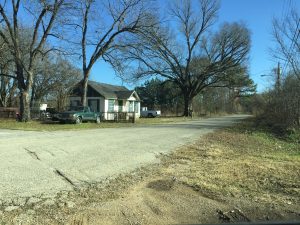 Council Member and let them know know you want the Plan Commission to pull the item from the “consent” agenda so it will individually discussed on the 13th as part of the public hearing portion of the agenda instead of the done deal “consent” part.
Council Member and let them know know you want the Plan Commission to pull the item from the “consent” agenda so it will individually discussed on the 13th as part of the public hearing portion of the agenda instead of the done deal “consent” part.
A hearing requires the public to be heard and a recorded vote take place by Plan Commission members for some kind of action – Delay, Disapproval, or Approval. We get to make our case against the batch plant only if it’s pulled off the consent agenda.
Folks opposing the zoning change may speak against the staff’s recommendation if they choose. The hearings start at 1:30 PM and can last through the early evening. It’s hard to tell what time the item will be heard, so be prepared to come and stay awhile.

